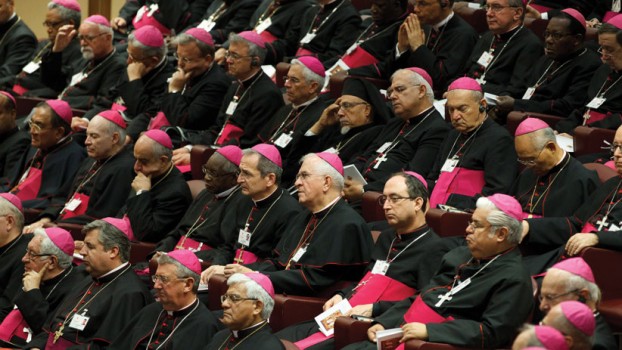A Parable for Our Time
The after-dinner conversation of the group moved to a discussion of ‘the celibate Bishops Synod on the intimacies, well-being and problems of Marriage and Family life and its bearing on society’. Mike offered his position on the Synod using a somewhat long winded parable.
‘There was a State which enjoyed an impressive level of public health due largely to the service and leadership of its highly skilled medical specialists and general practitioners and to its deeply committed National Medical Board. The broad range of their field of expertise covered every aspect of public health: Obstetrics and gynaecology, Child psychiatry, Occupational medicine, Physical medicine and rehabilitation………….
The National Medical Board
- registered medical practitioners and medical students
- developed standards, codes and guidelines for the medical profession
- investigated notifications and complaints about medical practitioners.
- where necessary, conducted panel hearings and referred serious matters to Tribunal hearings
- assessed the curriculum vitae of international medical graduates seeking to practise in the State.
- approved accreditation standards and accredited courses of study.
Inspired by the wholehearted professional service and example of that Medical Board and what it was able to achieve, the population lived in peace and tranquillity, welcoming to its midst people of all cultures, professions and nationalities who flocked into the State to belong.
But now for the Bad News
Over time a virus crept in, leading to the marginalisation and virtual exclusion of the medical practitioners from the National Medical Board. The professional practitioners were replaced by laymen, some power-drunk careerists, some well intentioned seeking advice from the some medical practitioners. Without qualification in medical knowledge and practice, they held ‘Medical Board Meetings’ to which they invited as Periti (advisers) some few medical practitioners – but without voice or vote in decision making.
The Eventual Outcome
The National Health Service, now without essential leadership, fell apart and there followed a massive emigration of people from that State, fleeing for their lives.
Eventually a new Head of the National Medical Board was elected. Though not a medical practitioner, he showed himself committed to service, to transforming the whole system. And now the people who didn’t emigrate are facing two big questions.
- Can our new Head of the National Medical Board single-handedly transform the present status quo?
- What initiative can we take on the ground towards standing together to bring about this much longed for transformation? ‘


Archbishop Eamon Martin also seems to be strongly in favour of ‘ground up’ renewal, Teresa – to judge from a recent interview in the Tablet.
I believe that if I were the parent of a teenage child now I should be protesting the rarity of opportunities for frank discussion of family issues with clergy of all ranks – issues such as the Internet, the restiveness of teenagers generally with the traditionally passive role gifted us by centuries of clericalism, and the highly dangerous age chasm between the average cleric and the fifteen-year-old.
The ‘John Paul II’ awards are for me a complete dodging of the scale of the problem, maintaining the role of clergy as ‘patrons’ and of lay people as ‘grateful receivers of clerical patronage’. This is literally ‘patronising’ – when it is known that many teenagers exercise a highly responsible caring family role in cases of parental absence and incapacity. They also need to care for one another in an increasingly dangerous social context of rampant addiction and online abuse.
I’ll bet that many already do that caring job, so why is the ‘mission and vocation of the family’ not submitted to families themselves for discussion – around the family table first of all, and then at parish level. Our unilateral clerical teaching model (‘you just sit there and listen’) is clearly bankrupt – so why is it taking so long for Pope Francis’ insistence on ‘dialogue, dialogue, dialogue’ to bear fruit in Ireland?
Sean’s comment on Teresa’s parable certainly strikes a refreshing note. We seem to wonder “what is wrong with the young people nowadays”!!Has our institutional church really listened or indeed been able to listen to them. We say ” they don’t want to know” but is it also the case that we don’t want to know? What we do as well as what we say matters.Are the church “fathers” missing mothers in their discussions on family matters?